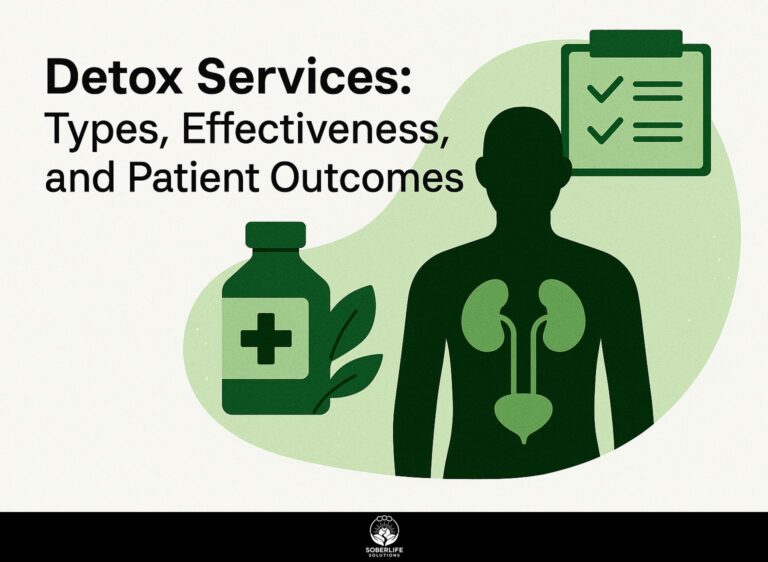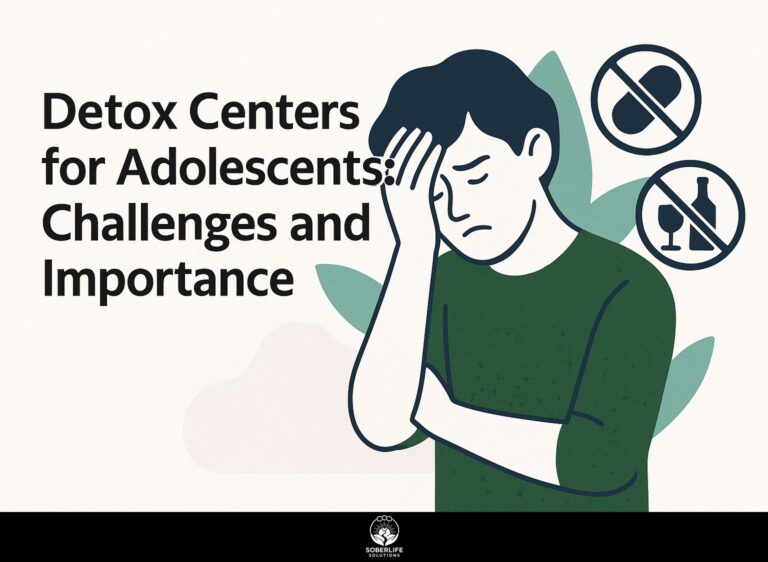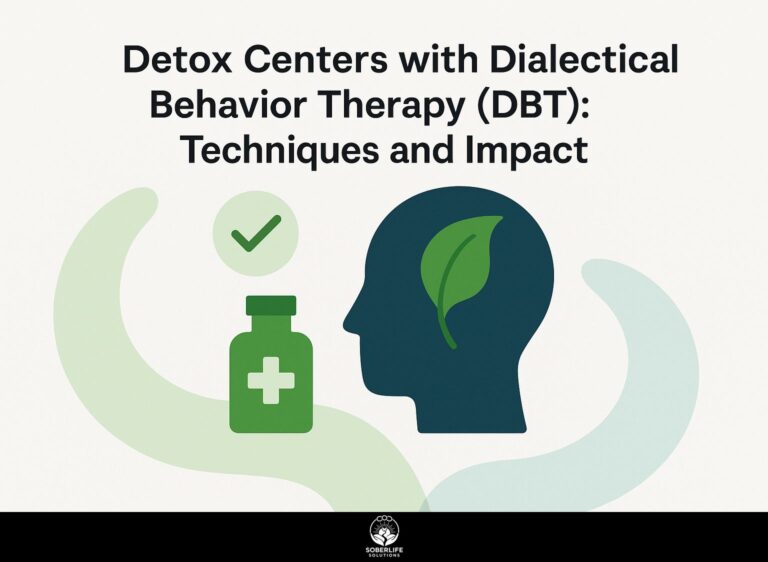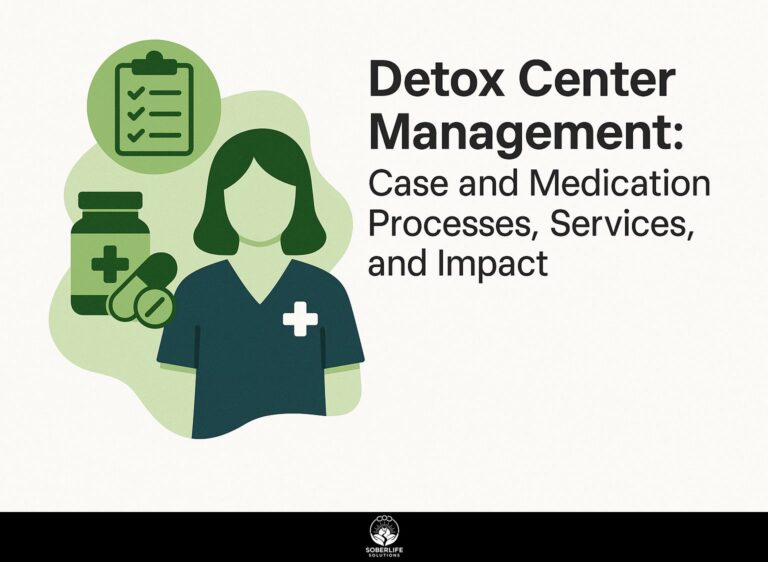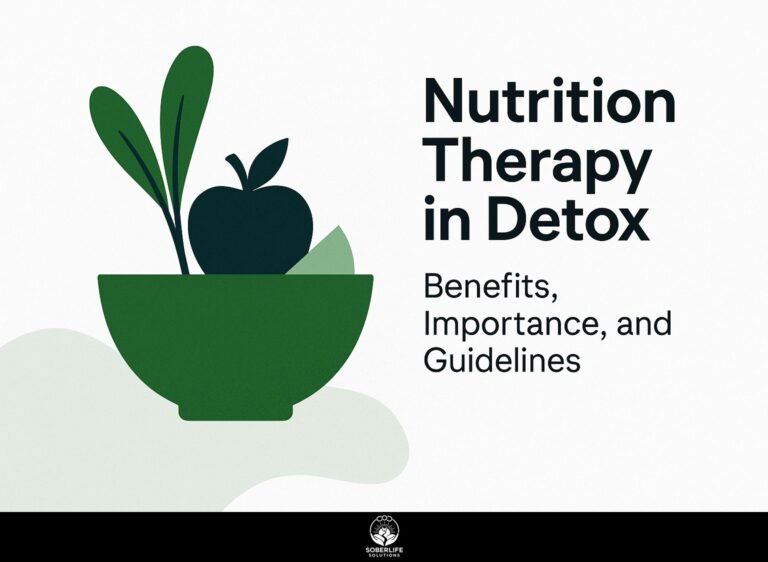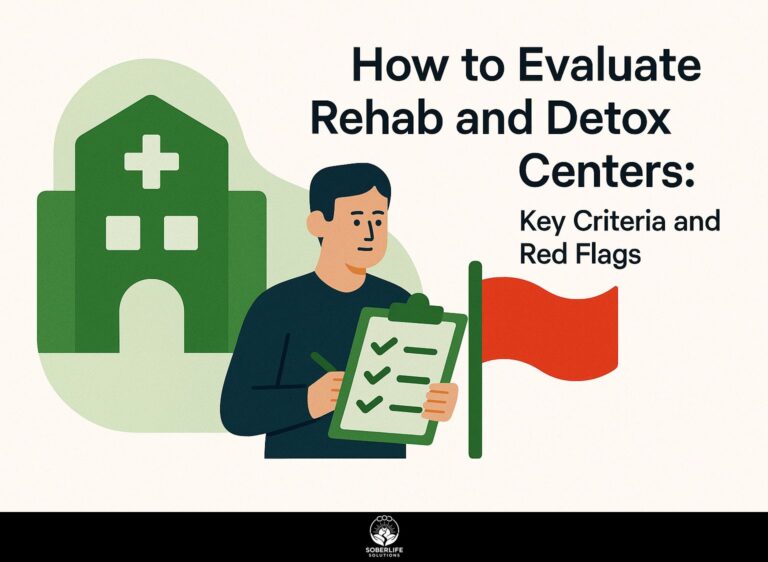Gateway Foundation Chicago: Programs and Contact Details

Struggling with addiction in Illinois? Gateway Foundation Chicago leads the way with compassionate treatment at its trusted centers. They serve areas from Aurora to Bloomington and offer programs for alcohol, drug, and dual diagnosis problems. These programs include detox, therapy, inpatient care, and aftercare support. This guide explains their services and provides simple contact information to help you begin recovery today.
Key Takeaways:
Overview of Gateway Foundation Chicago
Gateway Foundation Chicago, a leading provider in Illinois, has treated over 50,000 patients since 1975 with evidence-based addiction recovery programs accredited by the Joint Commission and NAATP.
The foundation treats alcohol and drug addiction. It runs several centers in Illinois, in cities like Chicago, Aurora, and Peoria, where it provides residential and outpatient care.
Their programs emphasize personalized treatment plans, incorporating therapy, medical detox, and family support, achieving a 70% sobriety rate at the one-year mark according to internal studies.
For instance, Sarah, a trauma survivor from a domestic abuse background, completed a 90-day residential program at the Aurora site, rebuilding her life through trauma-informed counseling and peer support groups.
Gateway’s evidence-based methods keep making a real difference, as a 2024 report from SAMHSA indicates that 21 million Americans need substance use treatment each year.
Mission and Services
Gateway Foundation’s mission centers on personalized, evidence-based recovery for addiction and co-occurring mental health issues, offering therapies like CBT and DBT to over 1,000 patients yearly in Chicago.
This method supports long-term sobriety with complete treatment that includes these main services:
- residential treatment (30-90 days for intensive support)
- outpatient programs (IOP/PHP for flexible recovery)
- medication-assisted treatment (MAT) with Suboxone for opioid dependency
- individual and group counseling
- family therapy to rebuild relationships
- and specialized correctional programs
A National Institutes of Health (NIH) study shows integrated care like this improves treatment outcomes by 40%.
For example, a custom plan for alcohol dependency could include motivational interviewing to increase commitment, along with weekly CBT sessions and family participation, incorporating virtual mental health treatments for alcoholism recovery adjusted during 60 days to deal with specific triggers and help prevent relapse over time.
Alcohol Addiction Programs

Gateway Foundation Chicago’s alcohol programs address dependency through structured detox and therapy, helping 80% of participants achieve initial sobriety per ASAM guidelines. Discover the medical detox process and patient care that underpins these effective outcomes.
Detoxification Services
Gateway’s 7-10 day detox program in Chicago uses medical supervision and MAT like Vivitrol to manage alcohol withdrawal symptoms safely for 200+ patients annually.
The process follows four key steps:
- In the first 24 hours, measure heart rate, blood pressure, breathing rate, and body temperature to assess the condition’s severity.
- Medication administration, using benzodiazepines for acute symptoms and Vivitrol to curb cravings;
- 24/7 nursing care in a residential setting, including hydration protocols to mitigate risks like delirium tremens (DTs), which affect 5% of cases per Mayo Clinic;
- Transition to therapy starting day 3, focusing on relapse prevention.
Typically lasting 7-14 days, supervised detox reduces mortality by 90%, as detailed in SAMHSA’s TIP 45: Detoxification and Substance Abuse Treatment. For example, a patient with severe AUD often completes it relapse-free.
Counseling and Therapy
Individual and group counseling at Gateway Chicago incorporates CBT and motivational interviewing, with sessions reducing alcohol cravings by 60% as shown in APA trials.
Sessions last 60 minutes with a 1:5 therapist-to-client ratio, using tools like worksheets and apps such as Calm for guided exercises.
Key therapies include:
- Cognitive Behavioral Therapy (CBT): 12 weekly sessions challenging triggers, with 70% efficacy per NIH studies.
- Motivational Interviewing: 4-6 sessions building commitment to change.
- Mindfulness for Sobriety: Daily 20-minute practices to manage urges.
A RAND study on combining therapies shows that using multiple methods together improves results. One client who struggled with alcoholism stayed sober for six months using CBT.
Drug Addiction Programs

Gateway Foundation’s drug programs target substances like opioids and stimulants, serving 500+ Chicago patients yearly with MAT and behavioral therapies for sustained recovery. To explore the full range of substance abuse treatment services, options, and eligibility, which can enhance long-term outcomes through personalized care.
Opioid Treatment Options
Opioid programs at Gateway Chicago feature MAT with Suboxone (daily dosing) and Vivitrol (monthly injections), achieving 55% retention rates per NIDA data.
| Option | Dosage | Cost (insurance covered) | Best For | Pros/Cons |
|---|---|---|---|---|
| Suboxone | 8-24mg/day | $400/mo | Maintenance | High efficacy/low abuse; daily commitment |
| Vivitrol | 380mg/month | $1,000/mo | Relapse prevention | No daily dosing but injection reactions |
| Methadone | Clinic-based, variable | Variable | Severe cases | Regulated access; effective for cravings |
All three are FDA-approved for opioid use disorder (Suboxone 2002, Vivitrol 2010, Methadone since 1947).
Setup involves:
- Induction (Day 1, supervised dosing)
- Stabilization (Weeks 1-4, adjust for side effects)
- Maintenance (ongoing monitoring)
For example, a heroin user transitions to Suboxone for 1-year recovery, reducing relapse by 50% per studies.
Dual Diagnosis Treatment
Gateway’s dual diagnosis care integrates addiction and mental health treatment, using DBT for 300+ co-occurring patients in Chicago with 65% improved outcomes per APA studies.
This simultaneous approach, as outlined by SAMHSA, addresses co-occurring disorders like depression and anxiety, affecting 50% of addicts according to NIMH data (our guide on co-occurring disorders treatment covers definitions, challenges, and strategies).
Key components include:
- Initial psychiatric evaluation (2 hours) to assess needs;
- Weekly DBT skills groups focusing on emotion regulation;
- Medication management with SSRIs and MAT for balanced care;
- Trauma therapy like EMDR (12 sessions) for survivors;
- Yoga three times a week to relieve stress.
A Harvard study highlights dual diagnosis efficacy, showing 70% sobriety rates.
Case in point: A PTSD patient with alcohol use disorder achieved full sobriety through targeted DBT integration.
Outpatient and Inpatient Care
Gateway Chicago offers inpatient residential care (28+ days) and outpatient options like IOP (9 hours/week), accommodating 400 patients with flexible insurance-accepted plans.
Inpatient programs provide 24/7 supervision for severe addictions, costing $10,000-$30,000 for 30 days with 80% completion rates, ideal for intensive detox.
Outpatient options, rising 25% post-COVID per CDC data, suit mild-moderate cases: Partial Hospitalization (PHP, 20 hours/week, $8,000/30 days), IOP (9 hours/week, $5,000/90 days, work-compatible, 60% success), and standard OP (weekly sessions). For a deeper exploration of these outpatient therapy options and their benefits, our guide on types and benefits offers comprehensive insights.
A working professional might choose IOP for cocaine recovery while maintaining employment.
To select:
- Undergo ASAM criteria assessment for level matching;
- Verify insurance like Blue Cross or Medicaid;
- Complete same-day intake enrollment.
Aftercare and Support Groups
Post-treatment aftercare at Gateway includes alumni meetings (monthly, 200 attendees) and sober living homes, boosting 1-year sobriety to 75% per internal tracking.
Gateway’s aftercare program includes five main parts for long-term recovery.
- A 90-day follow-up plan with bi-weekly check-ins to monitor progress.
- Alumni groups (virtual/in-person) integrating NA/AA for peer support.
- Sober living residences (6-12 months, ~$800/mo in Chicago) for stable housing.
- Relapse prevention workshops (CBT-based, quarterly) building coping skills.
- Mindfulness apps like Calm for daily sobriety maintenance.
This method cuts readmissions by 40% (SAMHSA study). For instance, one graduate joined the alumni network and sustained recovery through weekly supports.
It also ties into correctional programs for seamless re-entry.
Contact Details

Gateway Foundation Chicago provides 24/7 intake support via phone (888-401-1242) and online forms, accepting major insurances for immediate addiction treatment access.
Chicago Locations and Hours
Gateway’s main Chicago facility at 400 W Ontario St operates 24/7 for inpatient, with outpatient hours Mon-Fri 8am-6pm, plus nearby sites in Aurora and Bloomington IL.
Additional key locations include:
- It has lots of free parking. The facility fully complies with ADA requirements, including wheelchair ramps and rooms accessible for wheelchair users.
- Bloomington, IL: Outpatient services Tuesdays/Thursdays 10am-7pm; street parking available; ADA features like braille signage.
- Carbondale, IL: 24/7 detox focus; secure lot with valet option; ADA elevators and wide doorways.
To show the locations, add a Google Maps widget to your website that displays all the sites. New sites in Joliet and Peoria now reach the entire state, like the Caseyville location for southern Illinois.
Phone, Email, and Online Resources
Reach Gateway Chicago admissions at 888-401-1242 (24/7) or [email protected], with online chat for insurance verification and virtual assessments.
To get Chicago-specific help, call 312-337-0950. For Spanish-language help, call 888-979-1284.
Submit general queries via [email protected]. Visit gatewayfoundation.org for live chat from 9am-9pm daily.
Key resources include:
- An online portal for alumni meetings to maintain sobriety connections;
- An insurance verification tool accepting major providers like Aetna and UnitedHealthcare;
- Telehealth options for intensive outpatient programs (IOP) through Doxy.me.
For correctional services, call the specialized line at 847-742-4200.
For instance, an email inquiry often secures a same-day appointment at Downers Grove. All services are HIPAA compliant, ensuring privacy.
Frequently Asked Questions
What programs are available at Gateway Foundation Chicago?
Gateway Foundation Chicago offers a range of addiction treatment and mental health programs, including inpatient detoxification, residential rehabilitation, outpatient counseling, and specialized programs for co-occurring disorders. For full details on Gateway Foundation Chicago: Programs and Contact Details, visit their official website or call their intake line.
How can I contact Gateway Foundation Chicago for more information?
To reach Gateway Foundation Chicago, you can call their main hotline at (312) 337-0950 or visit their primary location at 3452 W. 111th Street, Chicago, IL 60655. Additional Gateway Foundation Chicago: Programs and Contact Details are available through their 24/7 helpline at 1-877-381-2767.
What are the inpatient treatment options at Gateway Foundation Chicago?
Inpatient programs at Gateway Foundation Chicago provide 24/7 supervised care for substance abuse and mental health issues, including medically managed detox and structured therapy sessions. Check out Gateway Foundation Chicago programs and contact information to find out about lengths, prices, and requirements.
Does Gateway Foundation Chicago offer outpatient services?
Yes, Gateway Foundation Chicago provides flexible outpatient programs such as intensive outpatient (IOP) and partial hospitalization (PHP) for ongoing recovery support without residential stays. For specifics on Gateway Foundation Chicago: Programs and Contact Details, contact their admissions team directly.
What specialized programs does Gateway Foundation Chicago have?
Gateway Foundation Chicago has programs such as trauma-informed care, dual diagnosis treatment, and family therapy that fit each person’s needs. Detailed Gateway Foundation Chicago: Programs and Contact Details can be obtained by scheduling a consultation or reviewing their program brochures.
How do I get started with treatment at Gateway Foundation Chicago?
To begin treatment, contact Gateway Foundation Chicago via phone or their online form for a free assessment. Their team will guide you through insurance verification and intake. Refer to Gateway Foundation Chicago: Programs and Contact Details for step-by-step admission processes and required documentation.

